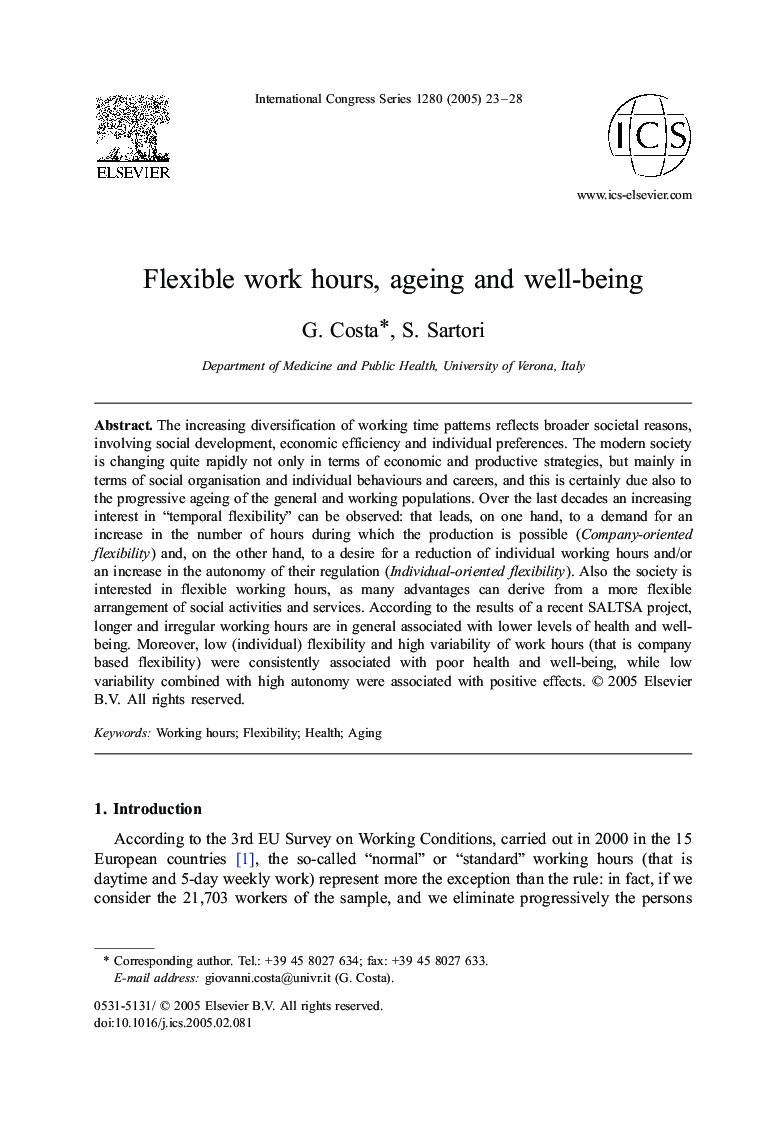| Article ID | Journal | Published Year | Pages | File Type |
|---|---|---|---|---|
| 9021211 | International Congress Series | 2005 | 6 Pages |
Abstract
The increasing diversification of working time patterns reflects broader societal reasons, involving social development, economic efficiency and individual preferences. The modern society is changing quite rapidly not only in terms of economic and productive strategies, but mainly in terms of social organisation and individual behaviours and careers, and this is certainly due also to the progressive ageing of the general and working populations. Over the last decades an increasing interest in “temporal flexibility” can be observed: that leads, on one hand, to a demand for an increase in the number of hours during which the production is possible (Company-oriented flexibility) and, on the other hand, to a desire for a reduction of individual working hours and/or an increase in the autonomy of their regulation (Individual-oriented flexibility). Also the society is interested in flexible working hours, as many advantages can derive from a more flexible arrangement of social activities and services. According to the results of a recent SALTSA project, longer and irregular working hours are in general associated with lower levels of health and well-being. Moreover, low (individual) flexibility and high variability of work hours (that is company based flexibility) were consistently associated with poor health and well-being, while low variability combined with high autonomy were associated with positive effects.
Keywords
Related Topics
Life Sciences
Biochemistry, Genetics and Molecular Biology
Molecular Biology
Authors
G. Costa, S. Sartori,
